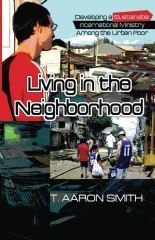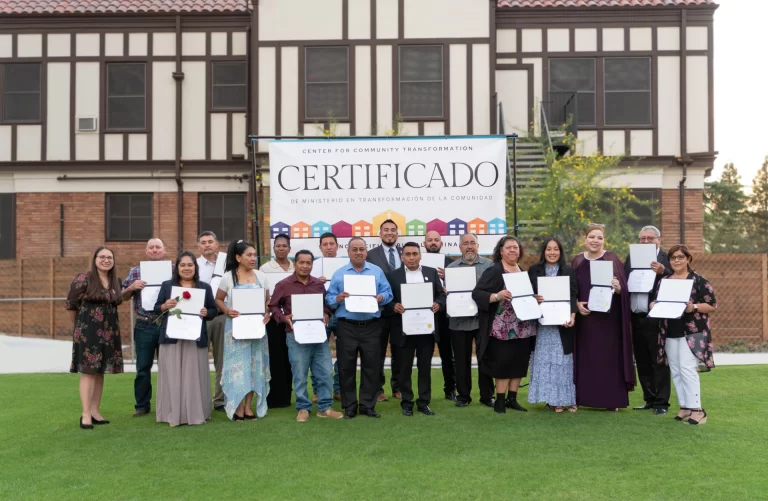 Book Review by Rev. Henry Oputa
Book Review by Rev. Henry Oputa
If you are a Christian aspiring to relocate to a less affluent community as an incarnational ministry leader, Living in the Neighborhood is an excellent resource book for you. T. Aaron Smith proposes that being physically present and engaging communities for transformation are necessary for incarnational ministry. The book provides guidelines for sustainable, meaningful living, and engaging less affluent communities for change. It highlights the advantages and disadvantages of various ministry options, and offers tips for finding the right fit for living among the urban poor. Smith, a great story teller, shares ministry challenges and triumphs and perhaps without intention, paints a clear picture of the gap between the rich and the poor.
The stories backdrops are Manila and Botocan Philippines. The book’s reoccurring concepts were “incarnational ministry” and “incarnational leader.” I had no difficulty with the incarnation concept of Jesus becoming flesh and living among men. I struggled with the idea that relocating to a less affluent community enables a ministry or a leader to be labeled “incarnational.” All Christians are commissioned to go and make disciples of all nations (communities). How does following the commission make one’s ministry and leadership incarnational? The closest way I believe an individual can have an incarnational ministry and be an incarnational leader is by moving to a less affluent community with: 1) no plans of moving back, 2) no plans of planting churches, and 3) plans to train and empower local Christian leaders to make disciples and plant churches in their own community. This varies from the author’s description. I believe that Smith’s recommended concept of “urban poor focused ministry” can be substituted for “incarnational ministry.”
The construct that living meaningfully in a community and engaging the community for change are codependent was another interesting aspect of the book. This construct was well illustrated in the story of how Michelle, an urban ministry leader from Bangkok, became a strategic neighbor to Areva – a 17 year old girl. Areva, who had just given birth to her first child, sold and was addicted to drugs. Church members shared their possessions and provided prayer, love, and services to Areva. As a result Areva’s spiritual, economic, and emotional problems improved. In addition, doubters became believers and the community experienced unprecedented change. Areva’s story demonstrates how people everywhere including in Fresno can come together in Jesus’ name and initiate neighborhood transformation.
The book identified numerous factors for a sustainable urban ministry and provided three critical reminders for me. First “a top down leadership style” for the sake of “efficiency” can negatively impact the engagement side of urban ministry. Second was the importance of taking a day to rest weekly. Third was the benefit of setting out a lengthy period for rest and reflection, annually.
Based on these reminders, I will work with our congregation and continue to assess our leadership model. I will also avoid the temptation to work on my scheduled Sabbaths. Revealingly, this book review was done during my vacation. I commit to do better.





